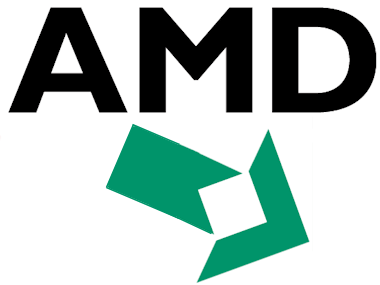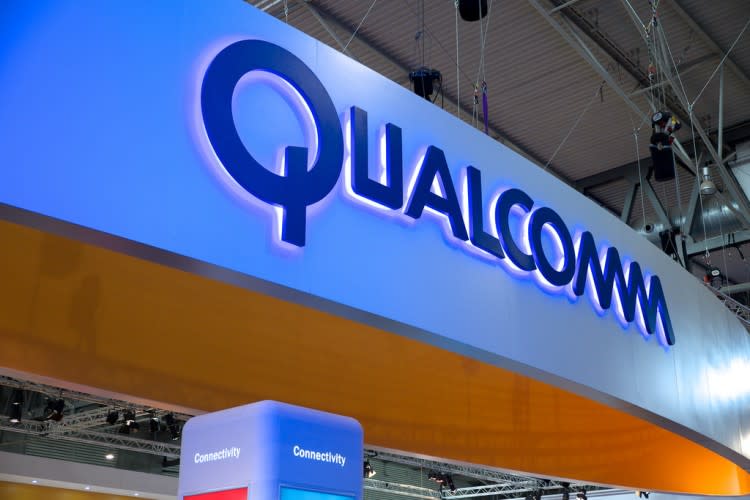15 Biggest VR Companies in the World
In this article, we are going to list the 15 biggest VR companies in the world. Click to skip ahead and jump to the 5 biggest VR companies in the world.
Virtual Reality (VR) is defined as a computer-generated simulation in which a person can interact within an artificial three-dimensional environment using electronic devices such as a head-mounted device (HMD) and gesture-tracking device (GTD). Virtual Reality (VR) provides an immersive artificial world that can seem quite real, using AI and technology.
Now, the VR market is not solely for the hardware segment which consists of the high-tech VR headsets, consoles, PC, smartphones, and other smart electronic devices. In able to be in a VR world, you need an immersive 3D environment that is developed by the software segment. Some of the software segments include training software, application development operating systems, simulation software, gamification software, virtual tour software, segmented reality software, game development software, and learning experience platform software.
When it comes to VR, our imagination is our only limit. There are many more uses of VR ranging from academic studies to engineering, design, business, the arts, and entertainment. Gaming is an obvious VR application that offers the ability to take players into the game in real-time. In 2019, the commercial application dominated the VR market with a share of 52.5%. Besides the gaming and entertainment industries, VR has been widely used for training and educational purposes. One of the most popular VR companies in healthcare is Osso VR. Osso VR is a virtual reality surgical simulation platform that focuses on practicing with virtual tools used by surgeons for orthopedic and spinal surgery. For educational use, Google's (NASDAQ: GOOGL) Expedition helps teachers in guiding students in exploring the world virtually. On the other hand, virtual reality has been useful in aerospace companies such as Boeing (NYSE: BA), as the company uses hard-flight simulators to reassess and train piloting skills. In 2020, Boeing partnered with Helsinki-based VR start-up, Varjo on training astronauts for Starliner's first crewed flight. Check out the 16 best space stocks to buy now to include in your portfolio. Apart from these, VR caught its market in the architecture and planning sector. Implementing virtual reality into architecture helps identify errors early in the design process and keeps costs down.

Halfpoint/Shutterstock.com
In 2019, the global VR market was valued at $11.52 billion. The VR industry is projected to reach $87.97 billion by 2025 at a compound annual growth rate (CAGR) of 48.7%. North America is the biggest market for the virtual reality segment which accounted for 44.2% of the global market share as the region has the highest number of start-ups committed to bringing advanced VR technologies to different industries. Major factors driving VR market growth include the evolving demand for entertainment and medical services, technological advancements, and the increasing penetration of VRs in the consumer electronics industry.
With at least a third of the earth's population in some form of lockdown, coronavirus has forced widespread behavioral change. Being stuck at home for months is challenging, and VR seems to be a game-changer for the moment! From the latest VR headset from Oculus to Argodesign's artificial window concept and Medicare's telemedicine for home health. These are all good news from the virtual reality industry. Now, are you more invested to know the biggest VR players in the world? We researched the biggest VR companies in the world and ranked them by their revenue, market cap, assets, and the number of employees from the lowest to highest values. To give you the most accurate results, we sourced these companies' financial information from Forbes. For private companies, we reviewed their updated financial statements. Now here are the biggest VR companies in the world starting at number 15:
15. Unity Technologies (NYSE: U)
Revenue: $541,779
Market Cap: $40.24 billion
Assets: $1.29 million
Number of employees: 3,379
Headquarters: San Francisco, CA
Unity Technologies is a San Francisco-based video game software development company originally founded in Copenhagen, Germany in 2004. It is the developer of a real-time 3D software platform, providing users with powerful and easy to access tools to create, operate, and monetize real-time experiences.

SAQUIZETA/Shutterstock.com
14. Vuzix (NASDAQ: VUZI)
Revenue: $2.8 million
Market Cap: $384.35 million
Assets: $28.45 million
Number of employees: 2,500
Headquarters: Denver, CO
Vuzix is an optical company specializing in the production of smart glasses. The company's display devices offer users a high-quality, portable viewing experience that provides mobility solutions, wearable displays, and virtual and augmented reality. VR software and Vuzix VR eyewear are used in a range of applications, from game and flight simulations to medical applications such as pain and phobia management.

13. Autodesk (NASDAQ: ADSK)
Revenue: $3.3 billion
Market Cap: $67.84 billion
Assets: $6.2 billion
Number of employees: 10,100
Headquarters: San Rafael, CA
Autodesk is a leading provider of computer-aided design software offering a wide range of 3D applications and tools. Autodesk also offers development software, providing manufacturers in the automotive, transport, industrial machinery, consumer products, and manufacturing industries with comprehensive digital design, engineering, and production solutions; and digital media and entertainment, consisting of tools for digital sculpture, modeling, animation, effects, and rendering.

12. Dassault Systèmes (OTCMKTS: DASTY)
Revenue: $4.5 billion
Market Cap: $37.8 billion
Assets: $15.6 billion
Number of employees: 19,361
Headquarters: Paris, France
Dassault Systemes is one of the biggest VR companies in the world which provides project lifecycle management solutions that enable businesses to create and share 3D experiences. life sciences, industrial equipment, and home and lifestyle. Dassault Systèmes has also designed an intuitive virtual reality experience based on Immersive Virtuality to make the learning process more attractive for students.

Copyright: buchachon / 123RF Stock Photo
11. Advanced Micro Devices (NASDAQ: AMD)
Revenue: $7.2 billion
Market Cap: $106.21 billion
Assets: $5.9 billion
Number of employees: 11,400
Headquarters: Santa Clara, CA
AMD is one of the biggest semiconductor companies in the world. AMD's groundbreaking LiquidVR technology enables exquisitely rich and immersive VR experiences by simplifying the creation of VR content, unlocking many unique AMD hardware features designed to work seamlessly with Radeon compatible graphics card headsets. Systems built with AMD hardware can deliver near-realistic real-time images at a high-resolution stereo and high refresh rates.

10. HTC Corporation
Revenue: $9.8 billion
Assets: $7.1 billion
Number of employees: 3,500
Headquarters: Taoyuan, Taiwan
HTC Corporation designs, manufactures, assembles, processes, and sells smartphones and virtual reality devices in Taiwan and internationally. HTC's Vive is one of the largest VR headset developers in the world. The company's headsets offer users fantastic experiences, from games such as ping-pong or pool to experience across categories with features such as SteamVR tracking, high-definition graphics, 110 field of view, intuitive controls, and HD haptic feedback, enabling users to gain an unparalleled sense of immersion.

SFIO CRACHO/Shutterstock.com
9. NVIDIA (NASDAQ: NVDA)
Revenue: $10.9 billion
Market Cap: $318.4 billion
Assets: $17.3 billion
Number of employees: 13,775
Headquarters: Santa Clara, CA
We all know NVIDIA as one of the best designers and manufacturers of computer graphics processors, chipsets, and related multimedia software. NVIDIA, the leader in visual computing, is at the forefront of this exciting new virtual reality platform. From gaming to product design to film experience and beyond, NVIDIA delivers top of the line solutions for VR including industry-leading NVIDIA Turing GPUs, drivers, and SDKs to meet the needs of professionals, gamers, and developers.

8. Qualcomm (NASDAQ: QCOM)
Revenue: $24.7 billion
Market Cap: $177.6 billion
Assets: $31.9 billion
Number of employees: 37,000
Headquarters: San Diego, CA
QUALCOMM, Inc. is engaged in the production, design, and delivery of digital telecommunications products and services. Qualcomm Technologies is uniquely committed to making a superior VR experience by designing for the extreme requirements of fully immersive mobile VR. Qualcomm's microchips are designed to provide an efficient heterogeneous computing solution optimized for VR end-to-end applications.

Kārlis Dambrāns/Flickr
7. Tencent Holdings
Revenue: $54.6 billion
Market Cap: $509.7 billion
Assets: $137 billion
Number of employees: 62,885
Headquarters: Shenzhen, China
Tencent Holdings Ltd. is an investment firm and a leading provider of value-added services such as online and mobile games, community value-added services and applications across different Internet and mobile platforms, and online advertising. The China-based tech giant is one of the world's largest gaming company and is responsible for hit games such as League of Legends, Honor of Kings, and Game for Peace. The company created games exclusively for VR platforms and built headset functionality into some of its games.

Pixabay/Public Domain
6. Facebook Inc (NASDAQ: FB)
Revenue: $73.4 billion
Market Cap: $715.96 billion
Assets: $138.4 billion
Number of employees: 44,942
Headquarters: Menlo Park, CA
Facebook has used its technology strengths and massive reach for its software to establish a strong position in the online advertising market and to change the way the world connects. Virtual reality was one of the largest growth-and-innovation companies outside its core social media business. In 2014, Facebook acquired VR-company Oculus for $2 billion. In 2020, Facebook had its beta-launch of Horizon, a social experience where users can explore, play, and create with others in VR. Today, Facebook is one of the biggest VR companies in the world.
Click to continue reading and see the 5 biggest VR companies in the world.
Suggested articles:
Disclosure: No position. 15 biggest VR companies in the world are originally published at Insider Monkey.

